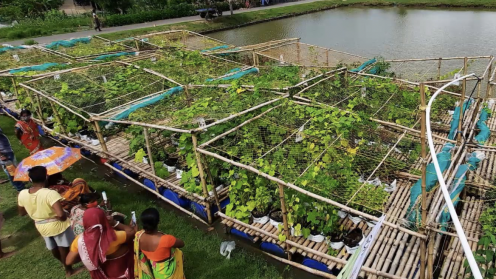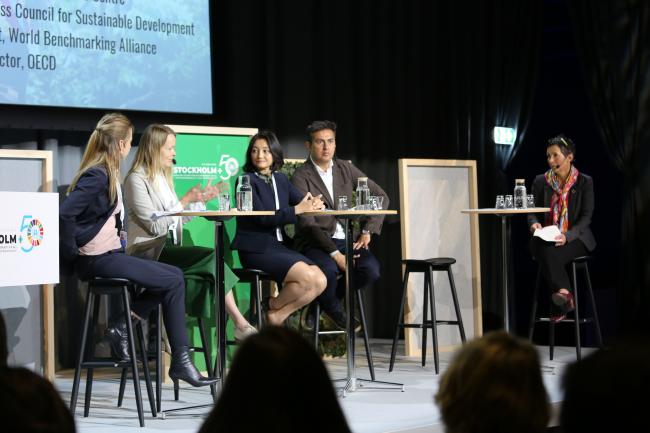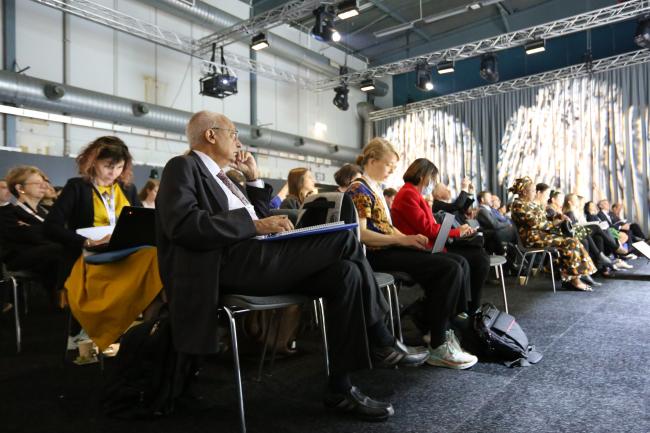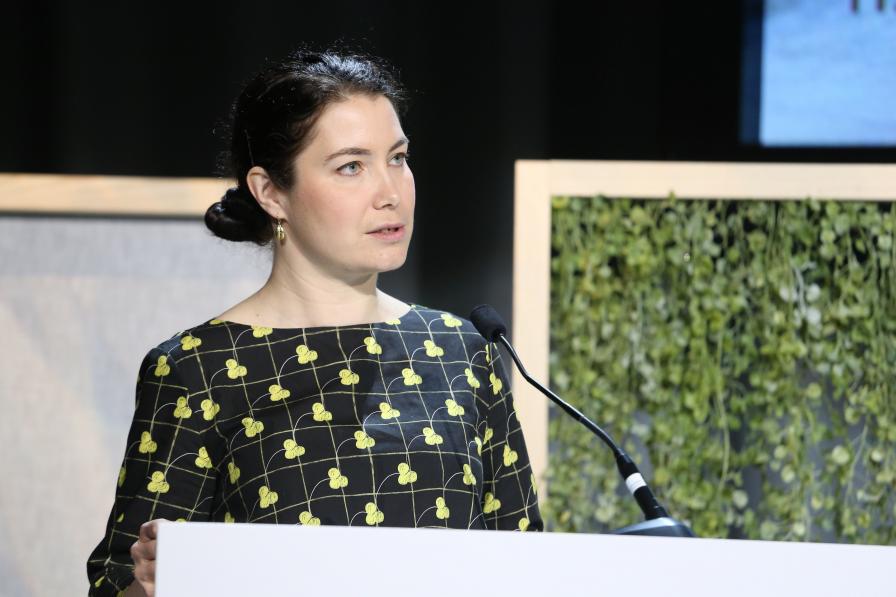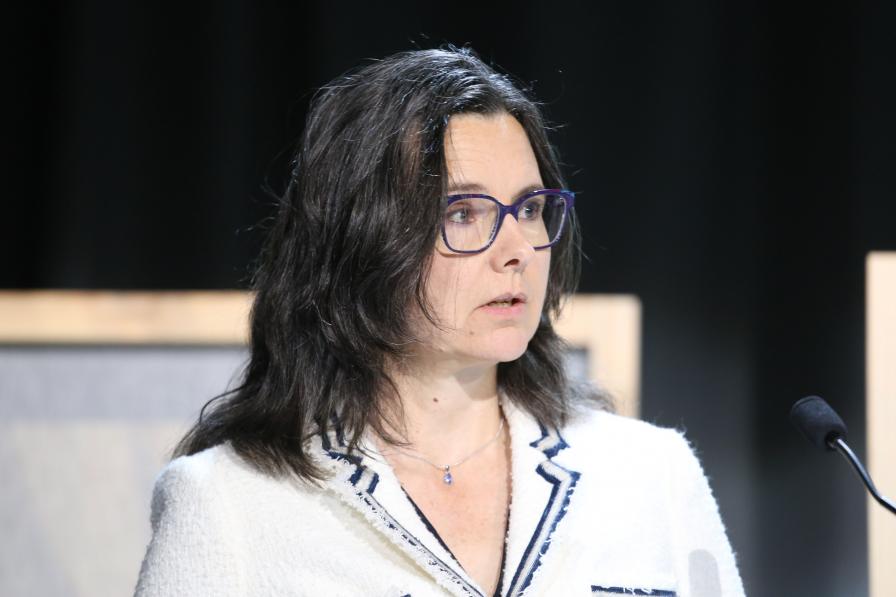About
Participants discussed the development of a roadmap on the reform of international institutions to support the transition to a global, nature positive and net zero economy.
Organized by: World Wide Fund for Nature (WWF) and the UN Environment Programme – World Conservation Monitoring Centre (UNEP-WCMC)
This side event discussed global governance gaps that hinder economies from achieving the required transition towards a nature positive economy and how these gaps can be addressed. Participants discussed the development of a roadmap on the reform of international institutions to support the transition to a global nature positive and net zero economy.
Key messages from the event include the need to:
- stop prioritizing short-term benefits over the wellbeing of people and the planet;
- draw a nature positive roadmap that includes global goals, global sectoral pathways, and national targets and strategies;
- reform nature-negative subsidies; and
- develop a robust regulatory framework, innovative finance tools, and nature-based solutions.
Co-moderator Marco Lambertini, Director General, WWF, stressed that during the 50 years following the UN Conference on the Human Environment, we did not value nature properly or take into account environmental externalities, leading to the triple planetary crisis the world is facing today. He highlighted Meadows’ et al 1972 publication Limits to Growth, underscoring two main problems: the fact that we did not fully understand the implications of our actions; and our inability to tackle global challenges in a coordinated way. He underscored that, 50 years later, “we know a lot more about our impact and what needs to be done.” He called for embracing the great transition moving away from unsustainable development and the great acceleration of natural resource use.
Sharon Ikeazor, Federal Minister for the Environment, Nigeria, focused on the two major threats of climate change and biodiversity loss. She drew attention to recent reports from the Intergovernmental Science-Policy Platform on Biodiversity and Ecosystem Services and Intergovernmental Panel on Climate Change that urged for collective action to address the threats. She described national efforts to address systematic drivers that contribute to the degradation of nature, highlighting the necessary policy reforms and the removal of harmful incentives towards an equitable transition to a nature positive, biodiversity-proof economy.
Highlighting that after 65 million years, the world is again threatened by a mass extinction, Emma Kari, Minister of the Environment and Climate Change, Finland, urged to stop prioritizing short-term benefits over the wellbeing of people and the planet. She drew attention to Finland’s Climate Act, including a climate neutrality goal by 2035, and a nature protection act to become nature positive, which is currently under discussion. She discussed the Dasgupta report on the economics of biodiversity that focuses on pollinators and their unaccounted value, stressing the need to mainstream nature’s protection in a whole-of-society approach.
Karen Ellis, Chief Economist, WWF-UK, underscored the need to transform the economic incentives facing all economic actors so they invest in nature protection. She highlighted global commitments, including the Leaders Pledge for Nature and the G7 2030 Nature Compact, and urged working with a wide range of stakeholders to identify the building blocks for a nature positive economy. She pointed to the net zero global architecture providing valuable lessons for a nature positive roadmap, drawing parallels on global goals, global sectoral pathways, and national targets and strategies.
A panel discussion followed, moderated by Cornelia Pretorius, Deputy Director, UNEP-WCMC. Victor Galaz, Deputy Director, Stockholm Resilience Centre, highlighted the domino effects between climate change, ecosystem degradation, and the world economy. He stressed the need for global collaboration to bring the finance sector to the side of nature, highlighting the role of financial gains, big asset managers, and index providers in financial markets.
Pauliina Murphy, Engagement Director, World Benchmarking Alliance, said all involved stakeholders must hold each other accountable for their actions. Discussing business practices, she highlighted benchmarking, which can reveal good practices that should be rewarded and unsustainable ones that should be discarded. She focused on human rights due diligence legislation, noting companies are not going to make the urgent progress required unless the proper regulatory framework is in place. She called for clear signals and policies, enabling a performance mindset for companies.
Kumi Kitamori, Acting Deputy Director and Head of Division, Green Growth & Global Relations, Environment Directorate, Organisation for Economic Co-operation and Development (OECD), highlighted, as a first step towards the required transition, the need to reform nature negative subsidies, emphasizing that negative incentives are 10 times greater than the public finance allocated to sustainability. She further focused on the need to go beyond gross domestic product (GDP), including the value of ecosystem services, when measuring progress, and on linkages between trade and global value chains, and biodiversity, calling for coordinated action.
Clea Kaske-Kuck, Director, Policy, Advocacy, and Member Mobilization, World Business Council for Sustainable Development (WBCSD), emphasized that businesses do not operate in isolation, calling for building partnerships for the private sector to contribute towards the nature positive goal. She highlighted the need to ensure our actions are fully aligned under the common goal, and suggested focusing on high-impact sectors, which have the greatest impact on nature and also the greatest dependency.
In the ensuing discussion, participants focused on nature positive economies at the city or community level as well as on barriers for investments towards sustainability.
In closing remarks, Carlos Eduardo Correa Escaf, Minister of Environment and Sustainable Development, Colombia, emphasized that “we are in debt to nature, but no one calls to collect that debt.” He emphasized that the triple planetary crisis of climate change, biodiversity loss, and pollution is costly. He discussed national efforts for the transition from a linear to a circular economic model, as well as Colombia’s efforts to lead multilateral efforts in that respect. He highlighted the need for a robust regulatory framework, innovative finance tools, and nature-based solutions, and, in conclusion, cautioned that “we do not have a planet B and we need transformative action now.”
Contact:
Åsa Ranung | asa.ranung@wwf.se
More information:
To receive free coverage of global environmental events delivered to your inbox, subscribe to the ENB Update newsletter.
All ENB photos are free to use with attribution. For photos of side events during Stockholm+50, please use: Photo by IISD/ENB | Angeles Estrada Vigil
